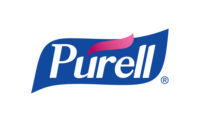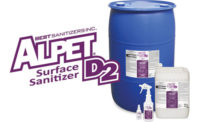Factors like the Food Safety Modernization Act (FSMA), the evolution of Hazard Analysis Critical Control Points (HACCP) best practices, and the proliferation of different ingredient types to suit customer tastes and health concerns—including gluten-free production and handling known allergens—have led snack food and bakery facilities to place greater emphasis on cleaning and sanitation.
That trend has continued in 2020, with the additional factor of COVID-19 to take into account. “One shift we have seen, as it relates to sanitation, is the enhanced focus on stressing the importance of personal hygiene for team members—not only at the workplace, but also at home,” says Jake Watts, vice president of food safety, PSSI, Kieler, WI. “PSSI has designed a ‘COVID-19 Playbook’ that lays out all aspects of our sanitation plant to mitigate risk associated with the virus.”
To ensure that its cleaning and sanitation systems meet customer needs more broadly, Douglas Machines Corp., Clearwater, FL, gathers customer information and insights upfront, says Darcel Schouler, marketing manager. The company asks questions about the nature of the soil being removed, the types and sizes of containers involved, the presence of harder-to-reach areas, the overall volume, and whether chemical dosing will be required.
“Controlling cross-contamination remains a concern for the baking and snack food industries in these stressful times,” says Schouler. “Fewer people on the floor means fewer unknowns, and fewer chances for contamination.”
Goodway Technologies Corp., Stamford, CT, has seen customers moving toward dry cleaning, including dry steam cleaning, as much as possible to keep water out of the environment, says Evan Reyes, sales director, sanitation division, food and beverage. “So many customers are looking at better ways to clean areas like floors, drains, and equipment areas,” he says. “Because of the new requirements for environmental monitoring and pathogen control, everyone is getting up to speed on improving their environmental cleaning programs. There’s a relentless need to improve food safety and quality, while at the same time reducing labor.”
Customers of PureLine Treatment Systems, Bensenville, IL, have been more likely to implement new and improved cleaning and sanitation post-construction, says Steve Flieder, vice president. “Before they start up, people have been in and out, and they don’t know what they’re bringing in,” he says. “The room is finished, and they want to start with a clean break. They’re also opting for us to do a sanitation wash on the floor.” He notes facilities often have issues with drains—even though those issues might not originate with the drains.
Many snack and bakery facilities continue to use manual cleaning processes, along with some amount of automated cleaning and clean-in-place systems, says Keith Kronce, director, PathoSans and Klarion, Spraying Systems Co., Glendale Heights, IL. “Employees are more exposed to the chemistry,” he says. “We’re giving people the effectiveness of something that’s going to clean their equipment, disinfect their areas, and yet is non-corrosive to skin or eyes. Employees will be safer, they will need less PPE, and there will be less risk of lost-time incidents due to chemical exposure.”
Fresh approaches
Klarion, which produces the PathoSans brand, generates cleaning and sanitizing chemistries using an electrolytic cell that runs on salt water. Recently, the company has developed a formulation that tests surfaces for COVID-19, Kronce says. “Not only are we giving users the ability to clean and sanitize and disinfect processing equipment, but you can also use the same disinfectant in break rooms, office areas, and other high-touch points,” he says. “We’re giving them the ability to use that in areas where we’re helping from a virucidal standpoint.”
For 2021, Klarion will roll out a concentrate generator for on-site production, with less storage space necessary and a greater ability to transport it throughout the facility. “If you need 30 gallons to clean the facility, now you would have to transport 30 gallons,” Kronce says. “With the concentrate, you could take 2.5 gallons, move it to the dilution station, and make the chemistry there.”
Klarion’s products can be used across the board in terms of snack and bakery products, although they’re most useful in facilities that handle multiple products dictating a need for frequent changeovers.
Best Sanitizers, Penn Valley, CA, has rolled out the HACCP SmartStep2 Walk-Through Dual Footwear Sanitizing Unit, the latest in its family of foot-operated sanitizing units. Requiring zero electricity, the unit uses compressed air to deliver an atomized spray of the company’s Alpet D2 spray products to the bottom of footwear soles. With eight atomizing spray nozzles yet only 0.4 ounces of chemical needed, the product minimizes waste while improving moisture control.
When food plants switch from a footbath to the HACCP SmartStep2 product, they streamline and simplify their footwear sanitation program, says Jonathan Davis, regional sales manager, Best Sanitizers.
Patrick Casey, regional sales manager, Best Sanitizers, recommends facilities strategically place the unit at entrances of all production areas to create a secure and efficient way to sanitize footwear before employees walk onto the floor.
Combining the HACCP SmartStep2 with an Alpet D2 sanitizer product reduces cross-contamination from footwear, providing a 10-second kill claim on non-food-contact surfaces and a 60-second kill time on food contact surfaces such as rubber gloves.
PureLine Solutions provides chlorine dioxide-based disinfection products and services, including a chlorine dioxide wash for floors and a chlorine dioxide fumigation services that takes care of an entire room or building. The company can handle anything from a small electrical cabinet to entire plants of several million feet, Flieder says.
The company offers the PureVista product, a 100-gram chemical canister that’s activated with water to produce a chloride gas for smaller areas, a midsized system called PureFlo that handles up to 350,000 cubic feet, and a larger system called MobileClean that does several million cubic feet, he says.
“We have customers who not only use it when there’s a pathogen suspected or known that they’re unable to resolve via normal sanitation methods, but we have a lot of customers that do it post-construction,” Flieder says. “They’ve added equipment, added a room, built a new plant, and we do that kill prior to them starting operation.” The products can be used in any type of snack or bakery plant, he adds.
Douglas Machines has developed a line of washing and sanitizing equipment with input from baking and snack food customers that reduces production changeover time for cleaning from hours to minutes, Schouler says, adding that the company expects to unveil new energy-saving systems within the next six months. “Our focus is on increased efficiency, as well as applicable smart technology,” she says. “It’s imperative that our customers have the capability to analyze washing and sanitizing data before issues arise. Currently, PLC and HMI control interface options provide integration into the plant information center. Douglas Machines wants to take diagnostics for troubleshooting to the next level.”
A line of Scale Parts Washers from Douglas Machines quick-cleans component parts of weigh scales. Using the PLC with the color touchscreen feature allows the operator to change wash and rinse temperatures as detergent or soils vary, Schouler notes. “Our ability to create any customer wash rack produces tremendous flexibility in the type of trays, pans, and containers that can be processed in a single washer,” she says.
Goodway Technologies has two products that are popular with snack and bakery customers, Reyes says. Designed for confectionery, chocolate, granola and other bars, cookies, or crackers, the Fixed Brushless System cleans belts during the product line run—anywhere processors are doing a row of products and then a cooling tunnel right afterward, he says. “We’ve seen a tremendous need for a system that’s able to clean belts during production. It’s adding value for customers. Typically, they need to shut down the whole line and plan for downtime for sanitation and maintenance.”
Combining very low moisture steam and vacuum extraction, the product is also useful for customers doing sticky products containing ingredients like marshmallow or other sugar-based products, Reyes says. “That builds up on the rollers too much and production suffers,” he says. “We use very, very little steam—just enough to get the job done. It breaks down sugars and fats, and keeps the belt dry.”
The second product from Goodway is called BioSpray Technology, a portable sanitizing machine that uses an alcohol sanitizer at about 50 percent concentration and kills foodborne pathogens within 30 seconds. Used in a fog or mist, the product cleans three times faster than a spray bottle using one-eighth the chemicals, and it gets a “nice, even coating on equipment,” Reyes says. In addition to sanitizing water-sensitive equipment, the product can be used on computer keyboards and in cafeterias, locker rooms, and offices to guard against COVID-19, he says.
PSSI uses a variety of cleaning and disinfectant methods that are effective at mitigating COVID-19, Watts says. First, the company conducts routine preventative cleaning and disinfectant procedures, then identifies any potentially affected areas and sprays them with a fog or mist, using wet sanitation followed by dry sanitation.
“We’ve supported hundreds of food processors over the years, including the development of successful mitigation plans for some of the industry’s most-complex microbial issues,” says Watts. “This now includes a comprehensive sanitation strategy for food processors around the recent COVID-19 pandemic. With lives and businesses at stake, our team understands the critically important nature of our work and the need for perfection.”
Those efforts include a collaboration between in-house Food Safety Solutions and Chemical Innovations teams, who work together to develop customized plans, Watts says. “In the case of COVID-19, this includes a rapid response team and integration of exclusive products like PCI PURE Hard Surface sanitizer and Microbarrier Elite to build a scientifically validated program.”




